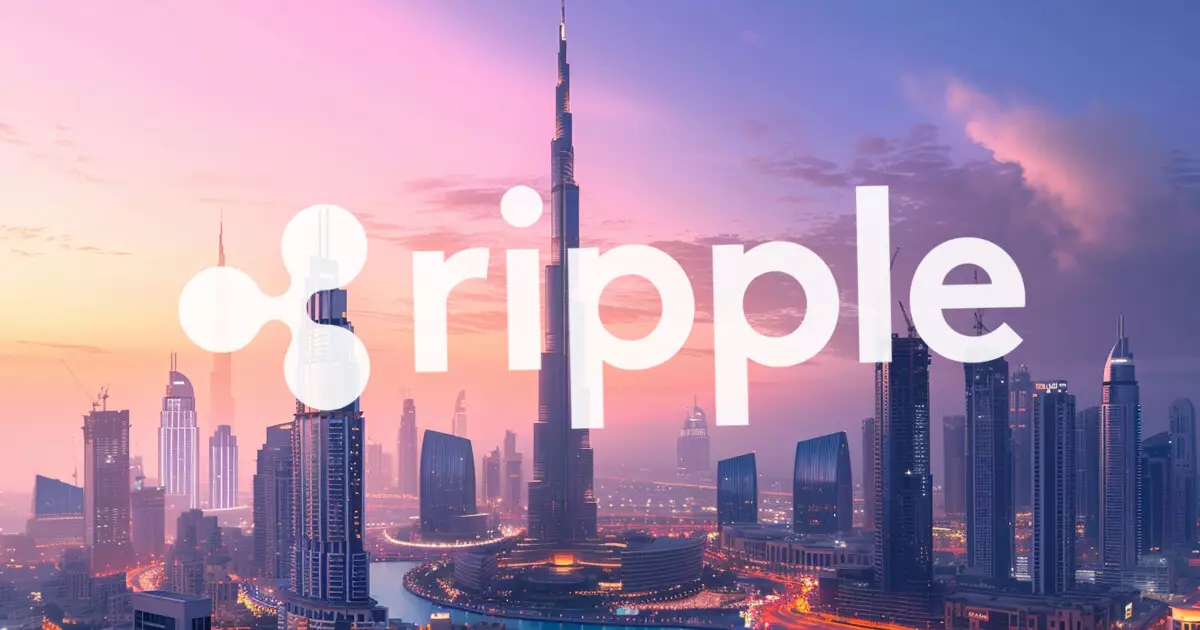Ripple has recently made headlines by receiving an in-principle license from the Dubai Financial Services Authority (DFSA), a move that is poised to transform not only the company’s operations but also the broader landscape of financial services in the United Arab Emirates (UAE). As the first blockchain-based payment service provider to achieve this milestone, Ripple reinforces its status as a pioneer within the sector. This regulatory approval is crucial for Ripple, as it aligns with its vision of delivering innovative financial solutions that are both efficient and in compliance with local laws.
The DFSA licensing grants Ripple the opportunity to set up operations within the Dubai International Financial Centre (DIFC), a major global financial hub known for its business-friendly environment. This fortifies Ripple’s commitment to expanding its footprint in one of the world’s fastest-growing and most dynamic financial markets. The license not only permits Ripple to operate legally within the UAE but also allows it to introduce its advanced digital asset infrastructure throughout the region, including the deployment of its Ripple Payments Direct (RPD) system designed for cross-border transactions. Such initiatives promise to revolutionize the way international payments are conducted, offering faster and more cost-effective services that deviate from traditional banking methods.
As Ripple solidifies its position in the UAE, its ambition is clear: to emerge as a formidable competitor to established players like SWIFT, which has long dominated the cross-border payments network. Investment bank Houlihan Lokey has pointed out that while SWIFT remains the “messaging network of choice,” it’s increasingly facing challenges from emerging blockchain solutions, fintech companies, and alternative banking networks. Ripple’s strategic acquisition of necessary licenses and its focus on regulatory compliance are critical steps that may help it gain an edge over its competitors as they navigate an ever-evolving financial landscape.
Growth and Momentum in the Middle East
Ripple’s presence in the Middle East has been one of intentional growth, particularly following the establishment of its regional headquarters in Dubai in 2020. The UAE’s regulatory framework is viewed as a catalyst for this growth, providing clarity that is essential for cryptocurrency and blockchain companies looking to thrive. Additionally, Ripple’s licensing in Dubai opens avenues to leverage markets beyond the UAE, including opportunities in Africa and South Asia. By strategically positioning itself in these rapidly growing markets, Ripple can capitalize on the increasing demand for digital payment solutions and liquidity management services.
A Vision for the Future
The approval from the DFSA not only marks a new chapter for Ripple but also highlights the evolving landscape of global finance in which blockchain technology is gaining traction. This development reflects a broader trend toward regulatory recognition of cryptocurrencies. As Ripple advances its mission to provide innovative financial services, it does so with the understanding that regulatory compliance and infrastructure investments are crucial to long-term success. The path ahead for Ripple is characterized by opportunities to reshape financial systems while addressing the unique needs of different markets, making it a player to watch in the coming years.

